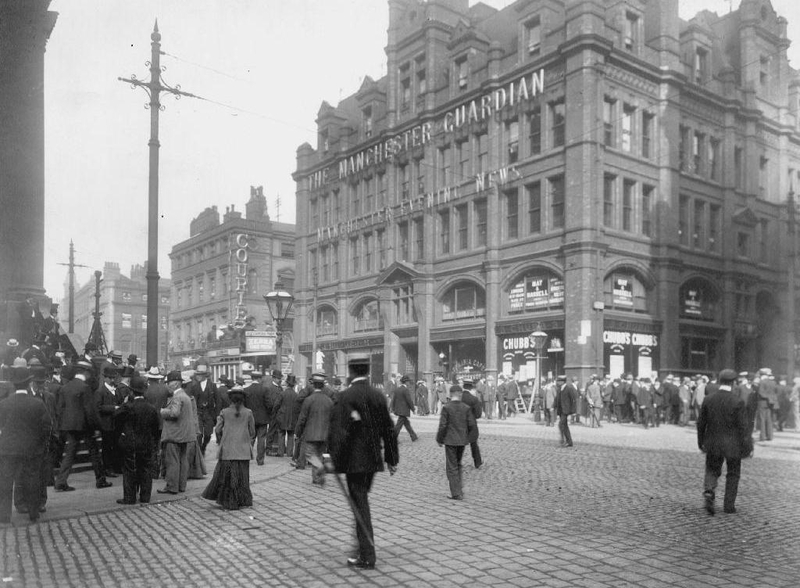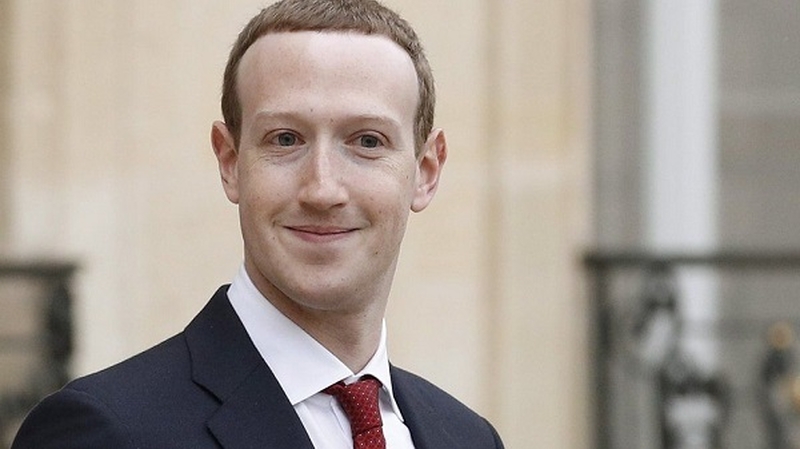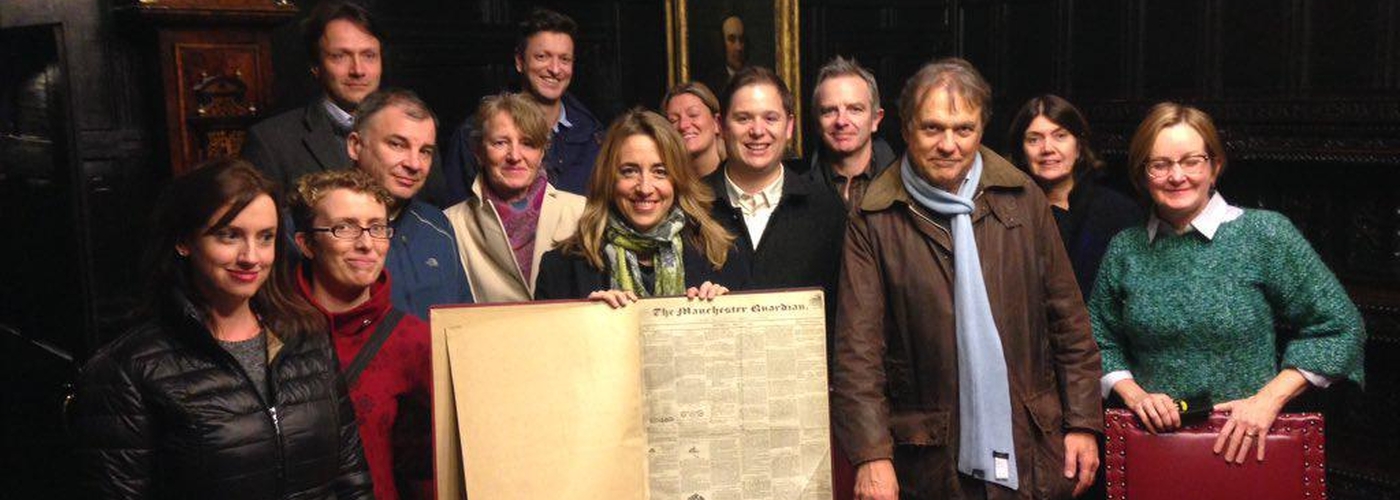Jonathan Schofield digs out the most beautiful definition of good journalism ever
May 5 is a busy anniversary day for Manchester. Not only was Karl Marx, a regular visitor to the city, born on that date in 1817, but in 1821 on 5 May the Manchester Guardian was born. In other words, the paper is 200 years old this week.
‘The voice of opponents no less than that of friends has a right to be heard’.
The Manchester Guardian, is now, of course, just The Guardian. The present editor-in-chief is Katharine Viner, its first female editor. I took her and the editorial team on a tour in 2015 and we visited Chetham’s. Viner and the others were a little awestruck when a first-run 5 May 1821 Manchester Guardian was produced. This was the ancestor of all they did, and in Viner’s case, still does.

The first editor was John Edward Taylor in 1821 who in the prospectus for the new paper declared: "No former period, in the history of our Country, has been marked by the agitation of questions of a more important character than those which are now claiming the attention of the public." The new newspaper was to have a "spirited discussion of political questions" and “the accurate detail of facts”. Sound familiar?
The best-known editor of The Manchester Guardian, in terms of longevity and importance at the post, was Charles Prestwich Scott. He was the head honcho from 1872-1929. Those sharp at maths will have worked that out as 57 years as the editor. Editor. That will never be equalled ever again by any editor anywhere. His generally reformist and progressive politics made The Manchester Guardian one of the most prestigious newspapers in the English-speaking world and beyond.

The first centenary of The Manchester Guardian in 1821 occasioned the publication of a book on the history of the paper. Scott wrote a foreword for the book which contains what could almost be described as a prose poem to journalistic integrity.
This contains his most famous line, "Comment is free, but facts are sacred", still used at the top of the Guardian Online’s comment section. That’s a fine line, yet read those seven words with the rest of the passage and it achieves greater power. Today’s 24-hour rolling news and social media rumour mill could do worse than to listen.

"Character is a subtle affair," wrote Scott, "and has many shades and sides to it. It is not a thing to be much talked about, but rather to be felt. It is the slow deposit of past actions and ideals…and so it is for that latest growth of time, the newspaper.
"Fundamentally it implies honesty, courage, fairness, a sense of duty to the reader and the community. A newspaper is of necessity something of a monopoly, and its first duty is to shun the temptations of monopoly. Its primary office is the gathering of news. At the peril of its soul, it must see that the supply is not tainted. Neither in what it gives, nor in what it does not give, nor in the mode of presentation must the unclouded face of truth suffer wrong.
"Comment is free, but facts are sacred. Propaganda, so-called, by this means, is hateful. The voice of opponents no less than that of friends has a right to be heard. Comment also is justly subject to a self-imposed restraint. It is well to be frank; it is even better to be fair. This is an ideal. Achievement in such matters is hardly given to man. We can but try, ask pardon for shortcomings and there leave the matter."

That line, "It is well to be frank; it is even better to be fair", is as strong as the famous "Comment is free, but facts are sacred". And as strong again are the words, "The voice of opponents no less than that of friends has a right to be heard."
Facebook, Twitter and the rest have been criticised for the way so many of their users retreat into silos of mindless back-slapping and hand-wringing. Such criticism is perverse in many ways because that’s exactly what they were designed to do, give the "little" man and woman a vehicle for getting their voice out there - unedited. It was inevitable that silos of like-minded people seeking vindication of their views no matter how extreme or odious would develop, along with all the good stuff.

More pertinently to this 200th anniversary of The Guardian, it sometimes seems the "traditional media", the edited media, is mimicking the web. The methods used by Facebook and others have poisoned the behaviour of our traditional news-gatherers.
Read a Daily Telegraph thirty years back and the level of Conservative reasonableness and "fair" reporting is plain to see. The Guardian was still, more or less, applying Scott’s principles too.
That’s been blown away in 2021. The opinion articles of both, say, The Telegraph and The Guardian (as two examples of politically opposed but "serious" papers from 2021) often betray them.
Perhaps the cat's leapt too far out of the bag and we have the divisive politics and journalism we deserve. This is not to say there are not excellent writers out there who apply those original CP Scott values, many in The Guardian, as for example, with Rafael Behr's balanced and nuanced article this week about the present Labour Party's predicament over where to position itself.
Maybe though, the 200th anniversary might give us pause to dwell on those words of the longest-serving editor, CP Scott, a little, and give a nod to the sentiment that "It is well to be frank; it is even better to be fair." We can hope.
In her essay, on the anniversary, Katharine Viner, seems very aware of this legacy. In 2021, with all the pressures on the media and in a particularly this divisive phase of politics, it's a Herculean job.

Oh and one last thing dear Guardian. One little itsy-bitsy request.
We live in the interconnected 21st-century world. There's no need for the head office to be in London anymore. Leave correspondents down there for politics and for the culture we don't get, but everything else, all the editorial staff, other UK and world news journalists, the admin can be run just as efficiently from Manchester.
Save some money, come back north, come home. Give yourself - and Manchester - a birthday present.
Jonathan Schofield is conducting tours called The Manchester Guardian is 200 years old anniversary tour. The Manchester Guardian, now The Guardian, was first published on Saturday 5 May 1821. This tour tells the story of how it came into being amid the turmoil following the Peterloo Massacre, but it will also reveal the story of the city and the paper as both grew into international importance. £15. These are at 6pm on Wednesday 5 May and at 11am on Saturday 8 May. Book here.













